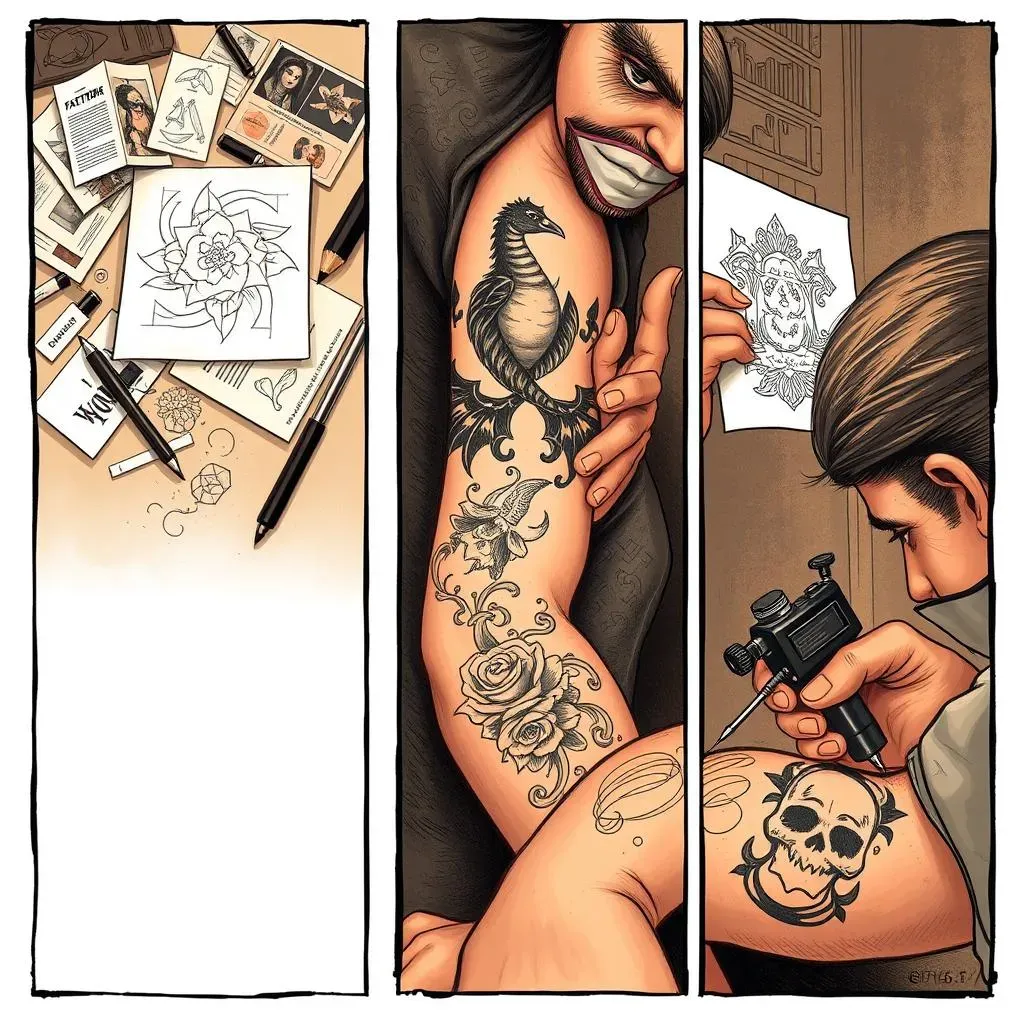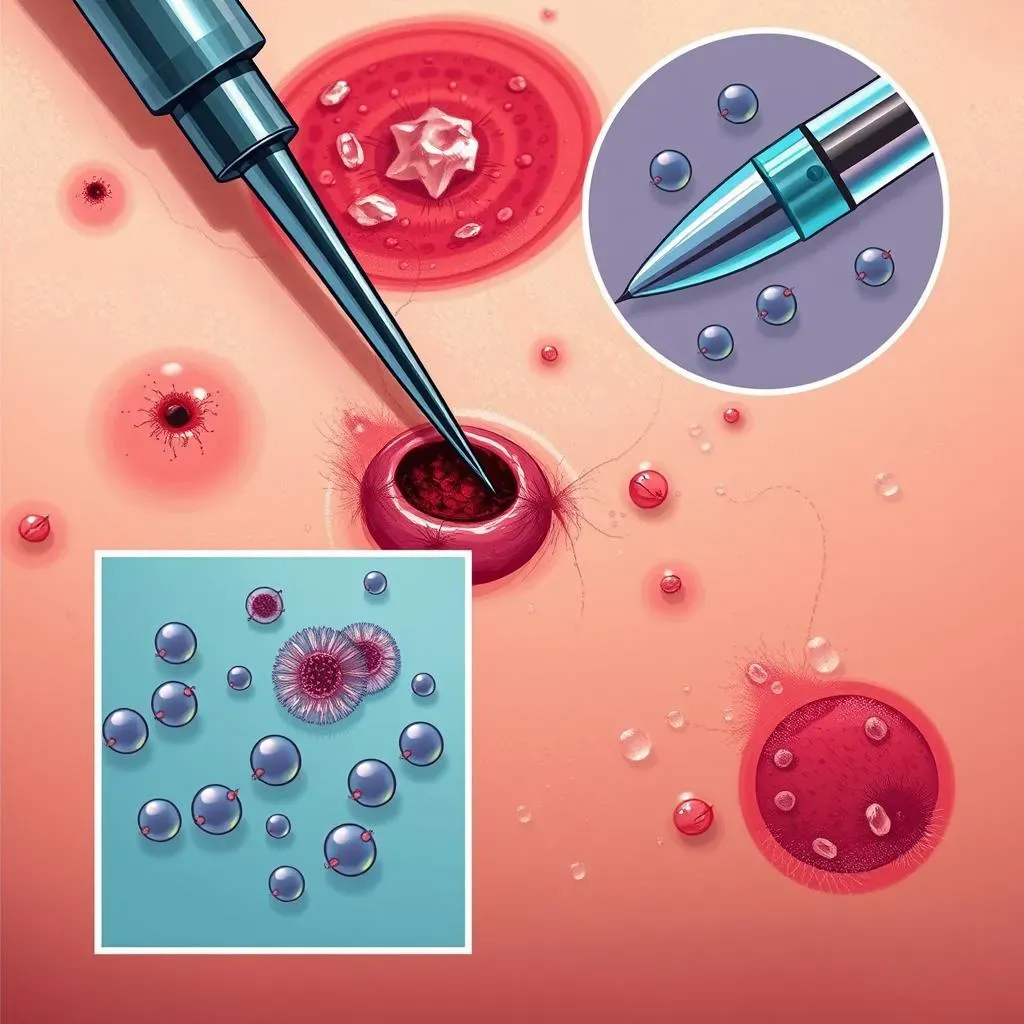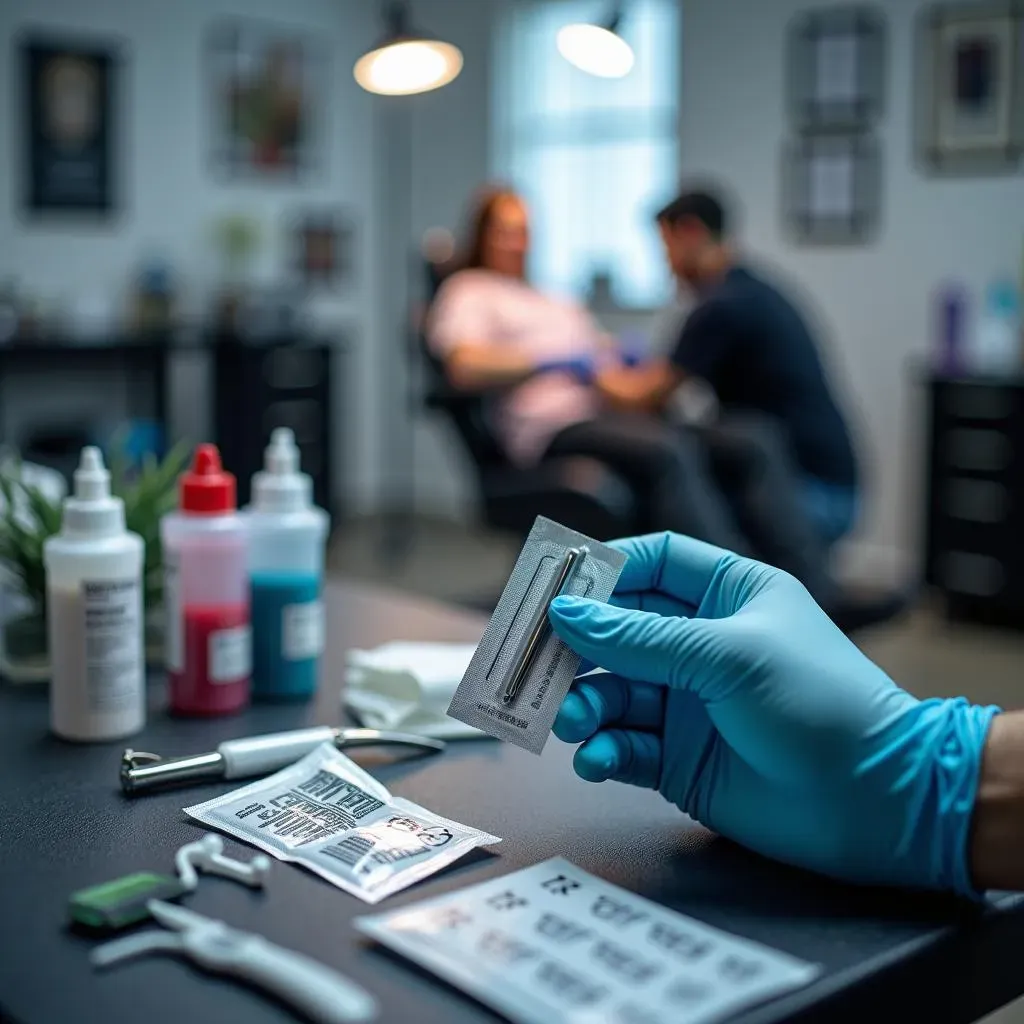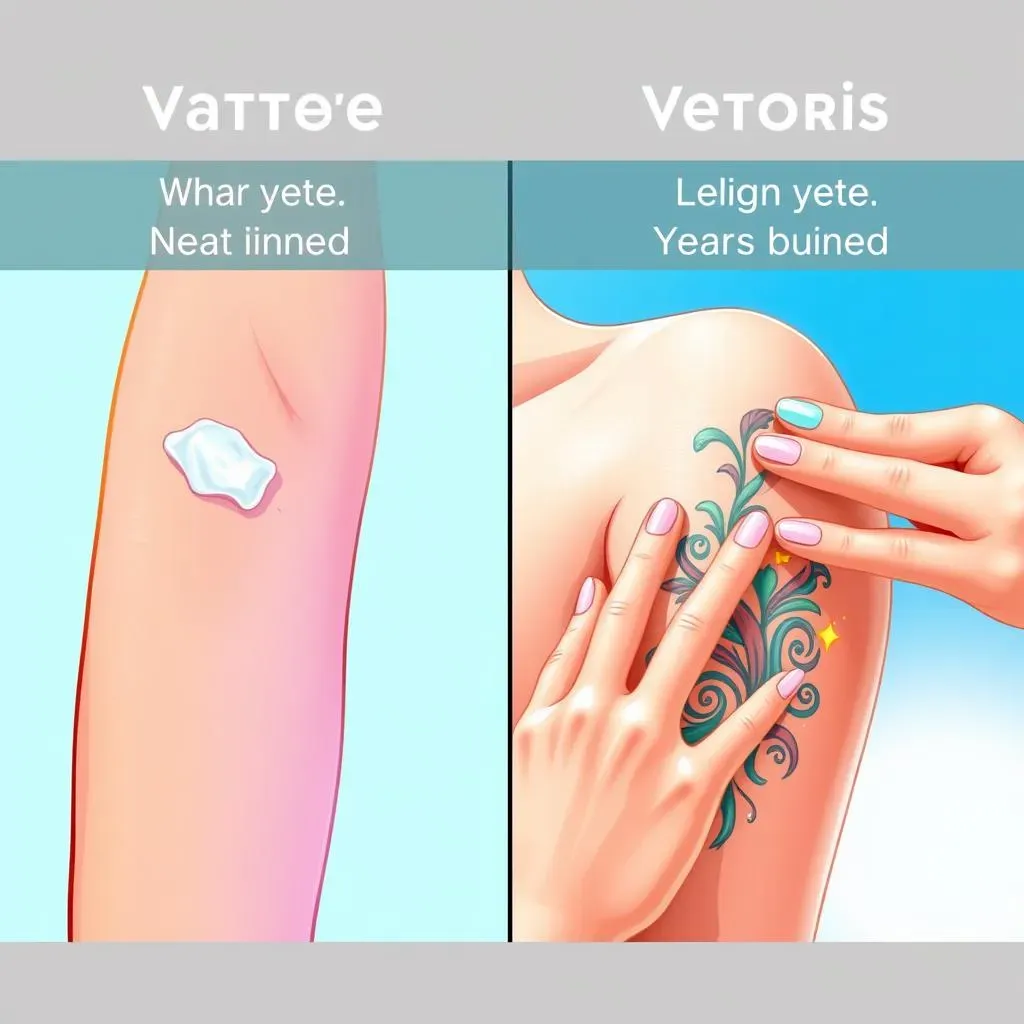Table of Contents
Thinking about getting a tattoo? It's a big decision, not just about the cool design you want, but also about what it means for your body. Tattoos are super popular, with tons of people sporting ink, but it's not all sunshine and roses. There are risks involved, and it's important to know what you're getting into. This article will walk you through the whole process, from how a tattoo actually gets put on your skin to potential health problems you might face. We’ll look at the safety steps you should take before you even think about sitting in that chair, and what you need to do afterward to keep everything looking good. We'll also touch on some long term things you should consider. So, before you decide if tattoos are for you, let's explore the ins and outs of "can tattoos" be right for you and what you need to know.
The Tattoo Process: From Idea to Skin
The Tattoo Process: From Idea to Skin
So, you’re thinking about getting a tattoo, huh? It’s way more than just picking a cool picture. The whole process is a journey, and it starts with your idea. First, you gotta figure out what you want. Is it a tiny symbol, a massive back piece, or maybe a tribute to your pet hamster? Once you have an idea, finding the right artist is key. Not all tattoo artists are created equal, some are amazing at fine lines, others rock bold colors, and some specialize in specific styles. Do your homework, check out their portfolios, and make sure they vibe with your vision. Then, there’s the actual appointment. You'll sit down with the artist, chat about the design, and get it stenciled onto your skin. This is your last chance to make changes, so speak up if something doesn’t feel quite right. The actual tattooing involves a needle that moves super fast, injecting ink into the second layer of your skin. It's not going to feel like a massage, but most people say it’s bearable. It's like getting a tiny pinch over and over again.
Can Tattoos Cause Health Problems?
Can Tattoos Cause Health Problems?
The Not-So-Fun Side of Ink
let's get real. Tattoos aren't just pretty pictures, they are also open doors for potential problems. Your skin is a natural barrier, and when you get a tattoo, you're essentially creating a bunch of tiny wounds. This can lead to infections if things aren’t kept clean. Think about it, a needle is poking your skin repeatedly, and if that needle isn't sterile, you could be looking at some nasty stuff. And it’s not just about dirty needles. Sometimes, the ink itself can cause issues. Some people have allergic reactions to certain pigments, which can cause itching, redness, and even bumps around the tattoo. It's like your skin is saying, "Nope, not a fan of this."
Beyond infections and allergies, there are other things to consider. Some people can develop skin conditions like granulomas, which are little lumps that form around the tattoo. And, though it's rare, there have been cases of bloodborne diseases spreading through contaminated needles. This is why it’s important to choose a reputable tattoo place that follows strict hygiene rules. There are also long-term effects to think about, like how a tattoo might affect your skin's response to the sun or how it can change with weight gain or pregnancy. It's not a decision to take lightly, it's about your health.
Real Risks, Real Talk
Let's talk specifics, because those "what ifs" can be scary. Infections can range from mild redness and irritation to serious bacterial infections that might need antibiotics. Allergic reactions can happen years later, not always right away. And, while it's rare, those bloodborne diseases are a real threat if you go to a place that isn't clean. Also, certain colors seem to cause more problems than others. Red ink, for example, is a known culprit for allergic reactions. It’s like the body is saying, "Hey, I don't recognize this, so I'm going to react!"
Now, I'm not trying to scare you off, but it's important to be informed. Some of these things are rare, but some aren’t. If you notice any redness, swelling, or pus around your tattoo, don't ignore it. Get it checked out by a doctor. Ignoring it can lead to bigger issues. It’s better to be safe than sorry when it comes to your health. So, before you commit to that awesome dragon on your arm, think about these risks and plan accordingly. It's not just about the cool factor, it’s also about being smart and safe.
Potential Health Problem | What it Looks Like | What to Do |
|---|---|---|
Infection | Redness, swelling, pus, pain | See a doctor, get antibiotics |
Allergic Reaction | Itching, redness, bumps, rash | See a doctor, antihistamines |
Granulomas | Lumps around the tattoo | See a doctor, potential treatment |
Bloodborne Diseases | Flu-like symptoms, long-term illness | Prevention is key, choose a clean place |
Safety First: Steps Before You Get Tattooed
Safety First: Steps Before You Get Tattooed
Do Your Homework
so you're serious about getting a tattoo, awesome! But before you jump into a chair, let's talk prep. It's like getting ready for a big trip, you wouldn't just hop on a plane without a plan, right? Same goes for tattoos. First off, research your tattoo artist. Don't just pick the first place you see. Look at their work online, read reviews, and see if their style matches what you want. A good artist should be happy to answer your questions and show you their setup. If they look shady or their place seems dirty, run the other way. Seriously, your health is more important than saving a few bucks.
Also, think about the design. Is this something you'll still love in ten years? Tattoos are pretty permanent, so it's important to pick something meaningful to you. Don't get something just because it's trendy. Think about the size and placement. How will it look as you age? Will it be easy to cover up if needed? These are all things to consider. It might seem like a lot of work, but it’s worth it to make sure you end up with a tattoo that you're happy with.
Health Check and Prep
Next up, think about your health. Are you up to date on your vaccinations? It's a good idea to be vaccinated against hepatitis B before getting a tattoo. Also, if you have any skin conditions, allergies, or health issues, talk to your doctor first. They can let you know if there are any specific risks to consider. And please, don't drink or take drugs before getting a tattoo. It can thin your blood and make the process more difficult and painful. Plus, you want to be in your right mind to make sure everything goes smoothly. It’s like going for a run, you wouldn’t eat a whole pizza right before, would you? Treat your body right.
On the day of your appointment, make sure you’re well-rested and have eaten something. Your body needs energy to handle the tattooing process. Wear comfortable clothes that won't rub against the area you're getting tattooed. And, if you're nervous, bring a friend for support. It can make the whole thing a lot less scary. Remember, you're doing this for yourself, so make sure you're in the best possible condition to enjoy the experience.
Step | Action | Why It's Important |
|---|---|---|
Research Artist | Check portfolio, read reviews | Ensures quality and safety |
Design Choice | Pick meaningful, lasting design | Avoid future regrets |
Health Check | Vaccinations, doctor consult | Reduce health risks |
Day-of Prep | Rest, eat, stay sober | Enhance safety and comfort |
The Artist's Setup and Your Rights
Before the needle touches your skin, take a good look at the tattoo artist's setup. Do they use sterile, single-use needles and ink? Are they wearing gloves? Do they open new equipment in front of you? These are all important things to check. You have the right to ask questions and feel comfortable with the process. If anything seems off, speak up. A good tattoo artist will appreciate your concern and be happy to show you that they're following proper procedures. It's like going to a restaurant, you want to see a clean kitchen.
Remember, getting a tattoo is a personal experience, and you have the right to feel safe and respected. Don't let anyone pressure you into something you're not comfortable with. If you have any doubts, don't be afraid to walk away. There are plenty of great artists out there who will treat you right. It’s your body, your choice. Be smart, be safe, and enjoy the process. It should be an exciting and positive experience, not a scary one.
Tattoo Aftercare and LongTerm Considerations
Tattoo Aftercare and LongTerm Considerations
The Healing Process: Your Tattoo's First Few Weeks
so you've got your new tattoo, congrats! But the job isn't done yet. Think of your fresh ink like a baby, it needs lots of care and attention. The first few weeks are crucial for healing. Your tattoo artist should give you specific instructions, but here's the general idea. You'll need to keep the area clean. Gently wash it with mild, fragrance-free soap and water, don't scrub it like you're cleaning a dirty dish. Pat it dry with a clean towel, don't rub. Then, you'll need to apply a thin layer of aftercare ointment. This helps keep the area moisturized and protected. Avoid soaking your tattoo in water, like baths or swimming pools, for a few weeks. Also, stay out of the sun. Direct sunlight can fade your tattoo and cause irritation. It's like giving your brand new car a wax job, you want to keep it looking shiny and new.
Now, don’t freak out if your tattoo gets a little scabby or itchy. That’s totally normal. It's just your body doing its thing and healing. But whatever you do, don't pick at it, picking can cause scarring and mess up your tattoo. It’s like peeling a scab, you just don’t do it. If you're unsure about anything, reach out to your tattoo artist or a doctor. They're the experts and can guide you through the healing process. The healing process can take a few weeks, or even months, depending on the size and complexity of your tattoo. Be patient and follow the rules, your tattoo will thank you for it.
Long-Term Care and Potential Changes
So, your tattoo is all healed up, now what? Well, it's not just a "set it and forget it" kind of thing. You need to keep taking care of it long-term. Sun is the enemy of tattoos, it fades the colors and makes them look dull. So, make sure you use sunscreen whenever your tattoo is exposed. It's like protecting your skin from a sunburn, you wouldn't go to the beach without sunscreen, right? Also, keep your skin hydrated. A well-moisturized tattoo will look vibrant and healthy. It's like watering a plant, you want it to thrive.
Now, let's talk about changes. Your skin changes as you get older, and this can affect your tattoo. Weight gain or loss, pregnancy, and just the natural aging process can cause your tattoo to stretch or sag. It’s like the jeans you wore in high school, they might not fit the same way anymore. And, while tattoos are considered permanent, they can be removed. Laser removal is a common option, but it's expensive, time-consuming, and can be painful. It's like trying to erase a drawing with a very stubborn eraser. So, before you decide to get a tattoo, think about these long-term considerations and make sure you're prepared for the commitment. It’s not just about the now, it’s about the future too.
Aftercare Step | Description | Why it's Important |
|---|---|---|
Cleaning | Wash gently with mild soap | Prevents infection |
Moisturizing | Apply aftercare ointment | Promotes healing |
Sun Protection | Use sunscreen when exposed | Prevents fading |
Avoid Soaking | No baths or swimming | Prevents infection and damage |
When Things Go Wrong and Removal Options
Sometimes, despite your best efforts, things can go wrong. You might develop an infection, an allergic reaction, or some other complication. If you notice any unusual redness, swelling, pus, or itching, see a doctor right away. It's better to be safe than sorry. Ignoring these issues can lead to bigger problems. It's like ignoring a leak in your roof, it's only going to get worse. Also, keep an eye on your tattoo for any changes in color or texture. If it starts to look different, talk to your tattoo artist or a dermatologist. They can help you figure out what’s going on.
Now, let's talk about removal. If you decide you no longer want your tattoo, you have options. Laser removal is the most common method, but it’s not a quick fix. It usually takes several sessions and can be quite expensive. It can also be painful and may not completely remove the tattoo. Some people also choose surgical removal, but that can leave a scar. There are also other methods, like chemical peels, but these are not always effective. Removing a tattoo is a lot harder and more complicated than getting one. So, before you get that tattoo, think about the long-term commitment. It's like getting a pet, you need to be prepared to take care of it for a long time.
Wrapping Up: Tattoos and Your Health
So, can tattoos be a safe way to express yourself? The answer is, it depends. It's not as simple as saying yes or no. Getting a tattoo involves risks, but these can be minimized. If you choose a reputable artist, follow all safety precautions, and take care of your tattoo afterwards, you're on the right path. Remember, a tattoo is a permanent change to your body, not something to be taken lightly. Do your research, ask questions, and make an informed decision. It's your skin and your health, so be smart about it. If you do decide to get one, enjoy the art, but keep safety and health your priority.